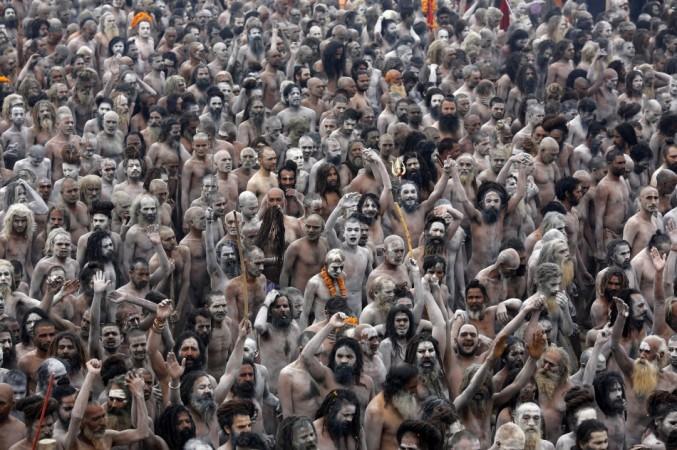Two years and two deadly waves later, have we learnt our lessons from the pandemic? Well, when it comes to rallies, religious congregations and cultural festivals, it seems not.
On Thursday, even as India counted an ominous number of 2.47 lakh Covid cases, Yogi-Adityanath government in Uttar Pradesh gave the go-ahead to Magh Mela in Prayagraj.
![Magh Mela [Representational image] Magh mela](https://data1.ibtimes.co.in/en/full/768691/magh-mela.jpg?w=599&h=350&l=50&t=40)
An event that brought an unpleasant sense of déjà vu to many healthcare experts, as once again lakhs of devotees are expected to take a holy dip with very little regard to social distancing and other Covid protocols. "Those symptomatic or not fully vaccinated should not attend the fair," said the Chief Minister, even as he faces a tricky few weeks ahead when UP goes to polls wherein he is seeking re-election.
Uttarakhand sets the right example
In an attempt to check the steep spike in Covid cases, Uttarakhand has banned devotees from taking a dip in the river Ganga at Haridwar during the annual festival. Many wished that UP authorities would take the cue and follow, but Adityanath may be relying too much on very little.
"We have out up hoardings at many places highlighting precautions like masks. Our screening teams are in place. All those coming to the Mela have to get vaccination certificates or RT-PCR test reports. There are provisions for testing at the venue too," shared Jai Kishan, health officer in charge of Magh Mela with media groups.
Tell-tale signs have begun
Given the established immunity-escaping nature of Omicron, vaccination certificates might not be enough. There is no dearth of social media ground reports vouching for inappropriately masked devotees. With many leaving their nose uncovered, while others using a gamcha for a mask. Ahead of the first day of the Magh Mela, a 45-day event, 28 cops on duty at the event have already tested positive.
Kumbh mela & second Covid wave

Last April, even as Delta variant had started wreaking havoc in the nation, millions of pilgrims gathered in the Himalayan town of Haridwar to be a part of the Kumbh Mela. When the pictures of millions hurdled together without masks to take a holy dip made it to front page headlines; a political debate and communal blame-game ensued.
The controversies did little to make health and state authorities swing into action, panic testing, isolating and implementing guidelines. A week later, the worst fears started coming true as did the Covid positive reports of Kumbh returnees, who turned out to be super spreaders. With almost each returnee boarding multiple forms of public transport, trains, plains, buses to get back to their corner of the country, it's not just the event but the returnees alongside who turned out to be super spreaders.
In an interview to BBC, epidemiologist Dr Lalit Kant says, "Huge groups of mask-less pilgrims sitting on the river bank singing the glories of the Ganges created an ideal environment for the virus to spread rapidly. We already know that chorus singing in churches and temples are known to be super-spreader events."
The 14-day mandatory quarantine, RT-PCR reports for returnees didn't work the way they should have. Nine seers from one group, music composer Shravan Rathod didn't survive the virus and as did hundreds others in the initial weeks.
Timely intervention, most crucial
A week later after the lead seer of one of the groups died, the festival was scaled down, with a statement from the Centre government that it was time to keep the festival symbolic. However, it was too late already. On April 12, India logged in 168,000 new cases and by then, also the first day of the festival, more than three million devotees had already taken a dip in the river.
Gangasagar Mela in West Bengal
Elsewhere in another part of India, there is a fear of similar mistake being repeated. After the Calcutta High Court gave the go-ahead to Ganga Sagar Mela, it commenced on Wednesday with West Bengal Chief Minister Mamata Banerjee inaugurating the annual religious fair. Once again, lakhs of devotees are expected to congregate. And, they may be relying on thermal screening at entry points and vaccination certificates.
The local authorities say they have deployed police, navy, disaster management teams and civil defence forces but will that be enough? Next few weeks will reveal.

















